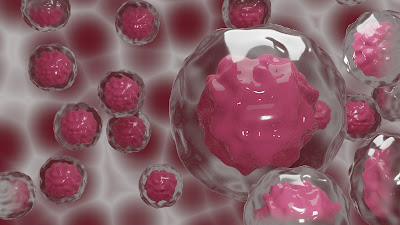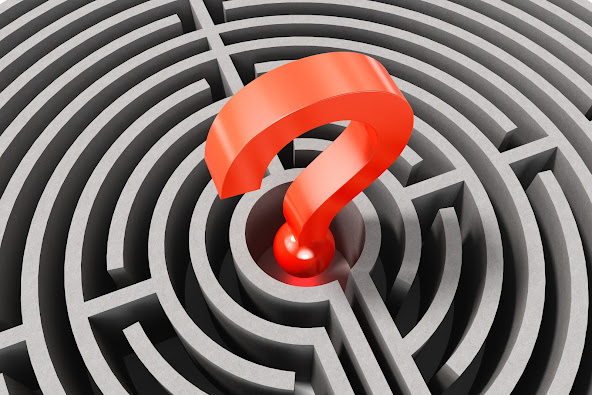Early signs and symptoms of cancer.
Cancer is caused by the uncontrol division of cells ,damaging and destroying body tissues. Cancer usually spreads throughout your body.
Summary
Cancer is caused by the uncontrol division of cells ,damaging and destroying body tissues. Cancer usually spreads throughout your body.
Cancer is the second leading cause of death in the world. But thanks to better cancer screening, treatment and prevention, survival rates for many types of cancer are improving.
Symptoms
Signs and symptoms of cancer vary depending on the area affected.
Other signs and symptoms related to cancer but not specific include:
Fatigue
Lumps found under the skin
Weight changes, including sudden loss or gain
Skin changes such as yellowing. , darkening or redness of the skin, sores that do not heal, or changes in existing tissue
Bowel or bowel movement changes
Persistent cough or shortness of breath
Difficulty swallowing
Coughing
Persistent weakness of food or pain after eating
Unexplained fever or night sweats
Bleeding or injury
When to see a doctorur doctor if you have symptoms and symptoms that concern you.
If you have no signs or symptoms but are concerned you may have cancer, discuss your concerns with your doctor. Ask about cancer screening and what options are right for you.
Application time
Why are there many genes placed in the DNA of a cell, each gene has instructions telling the cell what to do, how to grow and divide. Errors in the instructions can prevent cells from working properly, and cells can become cancerous.
What does genetics do
Genetics can teach healthy cells to:
Allow rapid growth. Genes can dictate how cells grow and divide quickly. This creates many new cells, all with the same differentiation.
did not prevent abnormal cell growth. Normal cells know when to stop growing, so each cell type has the correct age. Cancer cells lose tumor suppressor genes that tell them when to stop growing. Mutations in tumor suppressor genes allow cancer cells to continue to grow and multiply.
DNA repair error. DNA repair genes look for errors in a cell's DNA and fix them. Mutations in DNA repair genes prevent certain errors from being repaired, causing cells to become cancerous.
These changes are most common in cancer. But there are many other genetic changes that lead to cancer
What' do es gen
You may be born with a genetic makeup that you have inherited from your parents. This type of change creates a small channel.
Genetic changes that occur after birth. Most genetic changes occur at birth and are not inherited. Many things can cause genetic changes, such as smoking, radiation, viruses, cancer, smoking, hormones, chronic inflammation, and physical inactivity.
Many genetic changes occur during cell development. However, cells have mechanisms to detect when errors occur and correct them. Sometimes, the error disappears. This can cause the cells to become cancerous.
How do genes interact?
Gene changes you are born with and those you acquire throughout your life may play a role in cancer.
For example, if you have a gene that causes you to get cancer, that doesn't mean you will get cancer. However, you may need a mutation in one or more genes to get cancer. When you have specific cancer risk factors, changes in your genetic makeup can make you more likely than others to develop cancer.
Not knowing how many mutations a cancer has to accumulate. This seems to vary for different types of cancer.
Although doctors have their own opinions about factors that increase the risk of cancer, most cancers occur in people who do not understand the risk factors. Factors known to increase the risk of cancer include
your age
cancer takes longer to grow. This is why most cancer patients are 65 or older. Although it's more common in older adults, cancer is not a common disease -- cancer can happen at any age.
Your habits
Certain lifestyles are known to increase the risk of cancer. Smoking, drinking more than 1 drink per day for women and up to 2 drinks per day for men, amount of sun exposure, amount of sweat, smoking, and unprotected sex can all cause cancer.
You can change these habits to reduce your risk of cancer - although some are easier than others.
Your family history
A small percentage of cancers are hereditary. If cancer runs in your family, these changes may be passed down from generation to generation. You may be offered genetic testing to see if you have inherited mutations that increase your risk of certain cancers. Remember, being genetic doesn't mean you'll get cancer.
Your health
Some chronic diseases, such as ulcerative colitis, can increase the risk of other cancers. Discuss your risks with your doctor.
Where you live
There may be certain dangerous substances in your environment that increase your risk of cancer. Even if you don't smoke, you can smell second-hand smoke if you go to a smoking place or hang out with people who smoke. Chemicals in the home or workplace, such as asbestos and benzene, can increase the risk of cancer.
Complications
Cancer and its treatment can cause many complications including:
Pain. Pain can be caused by cancer or cancer treatment, but not all cancers cause pain. Medicines and other methods can treat cancer pain.
Fatigue. Fatigue in cancer patients has many causes, but it is treatable. Fatigue associated with chemotherapy and radiation therapy is common, but only temporary.
Difficulty breathing. Cancer or cancer treatment can cause shortness of breath. Treatment can cure.
Think big. Certain cancers and medicines can cause cancer. Sometimes your doctor can predict whether your medicines will cause nausea. Medication and other medicines can prevent or reduce nausea.
Diarrhea or constipation. Cancer and cancer treatment can affect your bowel and cause diarrhea or constipation.
Lose weight. Cancer and cancer can reduce weight. Cancer steals food from normal cells and starves them. It's usually not related to the number of calories or the type of food eaten; it's difficult to treat. In most cases, using a feeding tube or IV will not help with weight loss.
Chemical changes in your body. Cancer can destroy your body's health and increase your risk of serious complications. Symptoms of a chemical imbalance include extreme thirst, frequent urination, diarrhea, and confusion.
Brain and nervous system disorders. Cancer can press on nearby nerves, causing pain and numbness anywhere in the body. Cancers that affect the brain can cause headaches and stroke-like symptoms, such as weakness on one side of the body.
Immune system disorders in cancer. Sometimes the immune system can respond to the presence of cancer by attacking healthy cells. These rare disorders, called paraneoplastic syndromes, can cause a variety of signs and symptoms, such as difficulty walking and seizures.
Cancer spread. Cancer can spread (metastasize) to other parts of the body. Where the cancer has spread depends on the type of cancer.
Recurrent cancer. Survivors are at higher risk for cancer. Some cancers are more likely to come back than others. Ask your doctor what you can do to reduce your cancer risk. After treatment, your doctor will recommend a treatment plan for you. The plan may include regular checkups and tests in the months and years after treatment to check for cancer recurrence.
Prevention
Doctors have found many ways to reduce cancer, such as:
Quitting smoking. If you smoke, please stop. If you don't smoke, don't start. Smoking is linked to many types of cancer -- not just lung cancer. Quitting smoking now can reduce your risk of cancer in the future.
Avoid excessive sun exposure. Harmful ultraviolet (UV) rays from the sun can increase the risk of skin cancer. Minimize your exposure to the sun by staying in the shade, wearing protective clothing, or wearing sunscreen.
Healthy eating. Choose foods rich in fruits and vegetables. Choose whole grains and lean protein. Reduce consumption of processed foods.
Exercise most days of the week. Regular exercise has been linked to a lower risk of cancer. Try to exercise for 30 minutes at least a few days a week. If you don't exercise regularly, start slowly with 30 minutes or more at a time.
Being in good health Being overweight or obese increases the risk of cancer. Strive to achieve and maintain a healthy weight by combining a healthy diet and exercise.
Drink too much, if you choose to drink. If you choose to drink alcohol, do so in moderation. For healthy adults, this is approximately one drink per day for women and two drinks per day for men.
Arrange cancer testing. Talk to your doctor about the type of cancer screening test that is right for you, based on your risk factors.
Talk to your doctor about vaccinations. Some viruses can increase your risk of cancer. Vaccines can help protect against these viruses, including hepatitis B virus, which increases the risk of liver cancer, and human papillomavirus (HPV), which increases the risk of cancer and other cancers. Ask your doctor if your vaccinations are right for you.






0 Comments